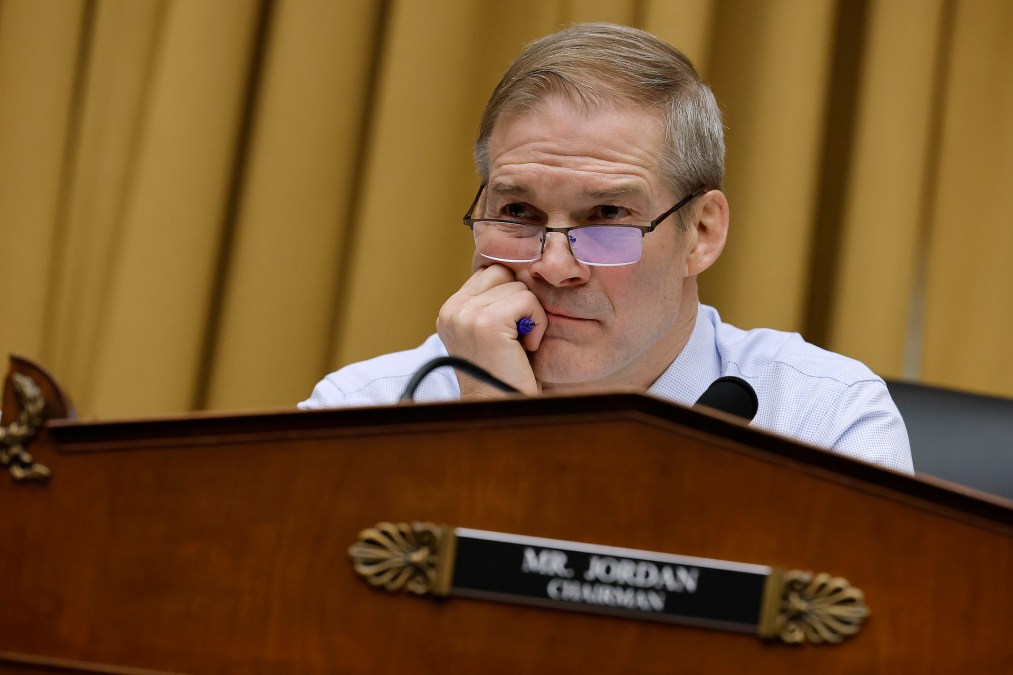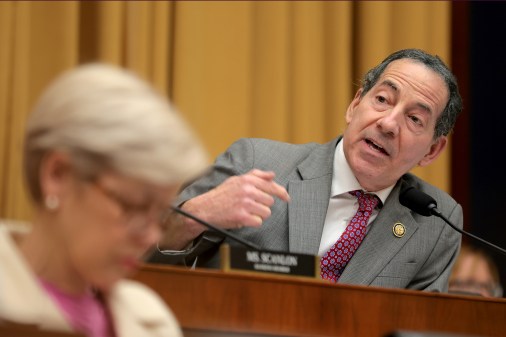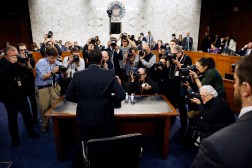Critics suggest intelligence agencies should get a warrant for FISA searches

The House Judiciary Crime and Federal Government Surveillance Subcommittee hearing on Thursday kicked off what is likely to be an intense series of hearings to debate the merits of a powerful surveillance authority for the U.S. intelligence community that sunsets at the end of this year.
Congress designed Section 702 of the Foreign Intelligence Surveillance Act, or FISA, to allow intelligence agencies to collect the online communications of foreign intelligence targets. But the way that program also has swept up Americans’ data, as well as the ability of the FBI to search that data, has raised oversight concerns from civil liberties advocates and many lawmakers.
Thursday’s hearing followed the recent release of internal FBI documents laying out guidelines for searching FISA data. Instead of easing concerns, however, civil liberty watchdogs say the documents show there are insufficient guardrails in place to safeguard Americans’ private data.
“Having clarity can help prevent the kind of compliance violations that we have seen,” said Sharon Bradford Franklin, chair of the Privacy and Civil Liberties Oversight Board, which serves as an independent watchdog of the U.S. surveillance programs. “However, I would urge that those are not sufficient. I believe that in addition to having specified rules which are approved by the FISA court, Congress should incorporate a requirement that individual queries be submitted to the FISA court for review to ensure full protection.”
Despite assertations by the intelligence community that a warrant process would harm investigations, the idea has generally been a popular one in Congress. The USA Rights Act in 2018 received more than 200 votes but did not make it into the final renewal.
“The solution is simple … require probable cause if you’re going to query this database on American citizens,” said House Judiciary Committee Chairman Jim Jordan, R-Ohio.
PCLOB is expected to issue a report with recommendations about Section 702 reforms later this summer. While Franklin and fellow board member in attendance, Beth Williams, could not speak to the specific recommendations in the report, advocates see the statement as a promising start.
“I think it’s definitely a good step in the right direction,” said Kia Hamadanchy, senior federal policy counsel at the ACLU.
However, groups including the ACLU have warned that a warrant requirement alone isn’t enough.
“One of the concerns we have is if you put a warrant requirement in place there are other avenues you have,” said Hamadanchy. Those include the sale of personal data by brokers to law enforcement as well as Executive Order 12333, the foundational authority used by the National Security Agency to facilitate warrantless searches.
Congress expressed concerns about a lack of information about how much data on U.S. persons is collected by Section 702. Since 2106, the intelligence community has deflected repeated requests from Congress for that information.
“My understanding is that their position has been that it would be impossible to come up with an accurate number, which I find concerning,” Justice Department Inspector General Michael Horowitz told members of the House Judiciary Committee on Thursday.
Public reporting puts the number of FBI searches of FISA 702 data at under 3.4 million in 2021. FBI officials in recent public statements have claimed that the number has dropped dramatically since it reformed its search processes. Due to how searches are conducted, it’s not clear how many of those searches ensnared the data of Americans.
Witnesses said that precisions shouldn’t stop the intelligence community from trying to collect that information and that even imprecise data could be enormously helpful to oversight.
“I urge Congress to require that they provide such an estimate even if it can’t be as mathematically precise as some of the other numbers they produced,” said Franklin. “I still believe it can be meaningful to Congress as you asses whether the safeguards are adequate under Section 702.”
PCLOB board member Beth Williams agreed, noting that the commission was looking at methodology being designed by Princeton researchers as a potential recommendation.
The hearing highlighted the enormous challenge the White House faces in getting Congress to renew Section 702. Republicans including Jordan, have expressed skepticism about renewing the authority at all. “How about if we just get the FBI out of the business altogether?” Jordan asked witnesses.
The Biden administration officially began publicly campaigning for Congress to renew the tool in February when Attorney General Merrick Garland and Director of National Intelligence Avril Haines sent a letter to Congressional leadership urging members to renew the authority, citing its role in national security, including disrupting cyber attacks by adversaries.
At a separate Georgetown Law event on Wednesday, NSA General Counsel April Doss said that 59% of the intelligence in the president’s daily brief had some sourcing from Section 702 data.





